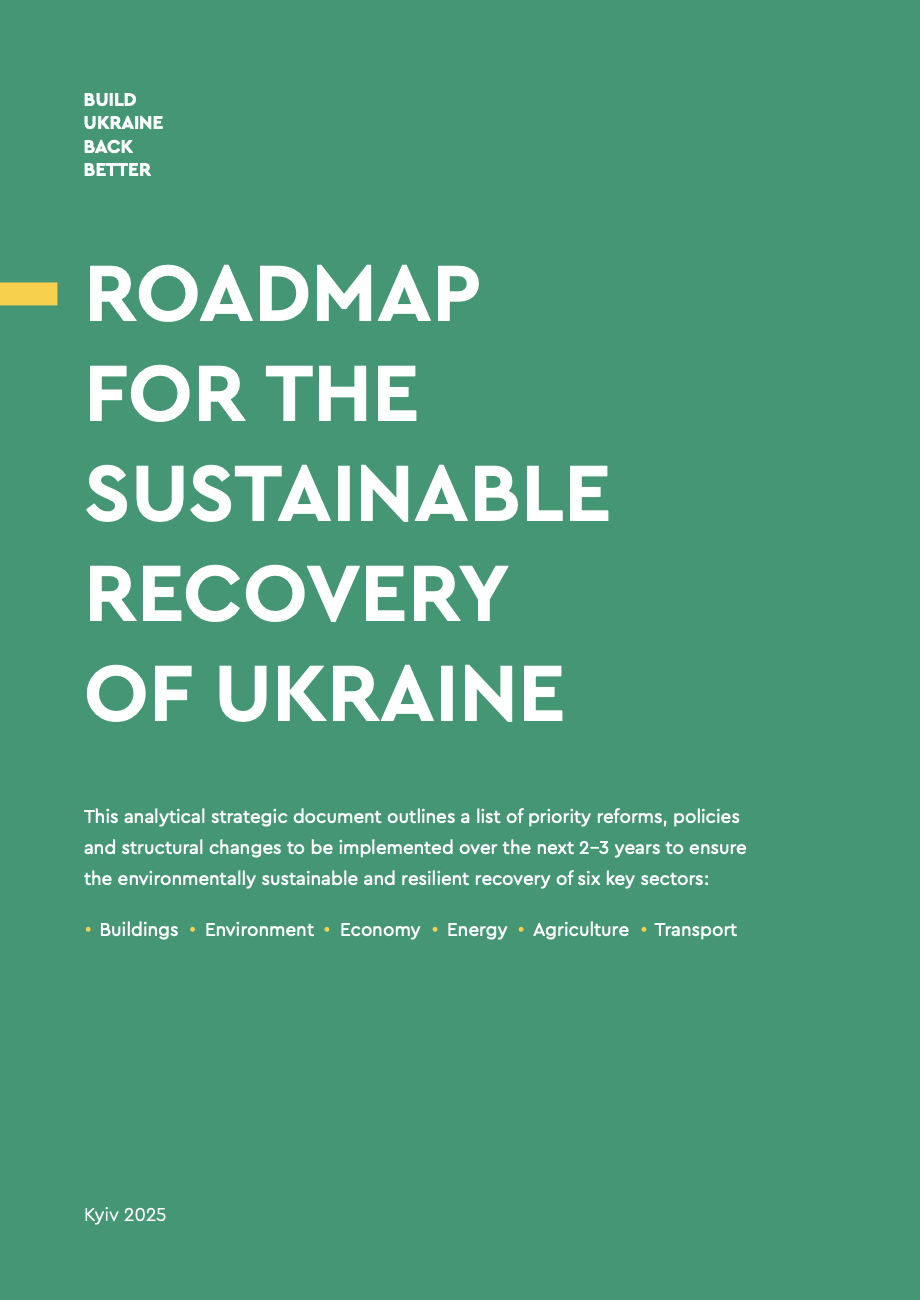Roadmap for the Sustainable Recovery of Ukraine
The Roadmap for the Sustainable Recovery of Ukraine is a joint effort by more than 40 leading civil society organisations, think tanks and academic institutions. This document aims to outline a list of priority reforms, policies, and structural changes that need to be implemented over the next few years to ensure environmentally sustainable and resilient recovery in six key sectors: agriculture, buildings, economy, energy, environment and transport.
Environmentally sustainable recovery is the process of restoring infrastructure, housing, the economy and ecosystems in an inclusive way that ensures long-term environmental safety, efficient use of natural resources and environmental restoration, while taking into account climate change and minimising negative impacts on ecosystems.
The document is based on three strategic guidelines:
Principles of sustainable and green reconstruction of Ukraine. At the heart of the roadmap are the principles of reconstruction formulated by civil society organisations back in 2022. They define the framework for all further decisions: cross-cutting integration of environmental and climate approaches into policy, focus on the needs of people and local communities, development of a green economy, compliance with environmental standards, transparent planning with public participation, and effective use of targeted funds and international assistance. In addition, the principle of sustainability has been identified as fundamental to Ukraine's reconstruction, as officially confirmed by the international partners who signed the 2022 Lugano Declaration.
Ukraine's European integration is an irreversible strategic choice that determines the direction of transformation in all sectors of the economy and public life. This roadmap does not aim to cover the entire EU acquis or detail the technical regulations that Ukraine is obliged to implement. Instead, we focus on the priority changes that are most urgent for ensuring the sustainable and resilient reconstruction of the country. Some reforms, particularly in the area of climate and environment (Chapter 27 of the negotiation process), will require special attention and decisive action today — not delaying until the end of military operations. The implementation of such reforms is not only a commitment to the EU, but also an opportunity to ensure a better quality of life for Ukrainians in the short and long term.
The goal of climate neutrality by 2050, which Ukraine has declared and enshrined in law as its long-term ambition. Despite the full-scale invasion, Ukraine is demonstrating consistency in its pursuit of climate neutrality — an ambitious long-term goal that is consistent with the European Green Deal, new EU clean industry initiatives and Ukraine's international commitments under the Paris Agreement. Although the Roadmap focuses on priorities for the coming few years, it takes into account the need for systemic changes that should already be bringing Ukraine closer to net-zero emissions. Phasing out coal in the electricity sector by 2035, developing renewable energy sources and stimulating new green industries are not only components of climate policy, but also an opportunity for Ukraine to take its rightful place in the new European economy.
We are convinced that reconstruction should not be a return to the pre-war state, but a meaningful leap forward — towards a more sustainable, resilient and climate-safe Ukraine, commonly referred to as the ‘build back better’ approach. This roadmap serves precisely this purpose.
